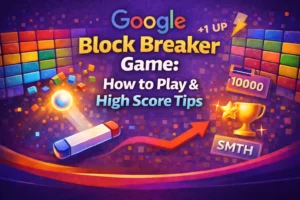In today’s competitive digital marketing landscape, Pay-Per-Click (PPC) advertising is vital for driving immediate traffic and measurable results. However, simply running ads isn’t enough. Success depends on leveraging PPC intelligence to make informed, data-driven decisions. This strategic approach helps marketers optimize campaigns, improve ROI, and gain a competitive edge in an increasingly crowded marketplace.
PPC Intelligence is the smart integration of data, machine learning, and automation to optimize pay-per-click advertising. It analyzes user behavior, ad performance, and market trends to improve targeting, bidding, and ROI. This intelligent approach enables advertisers to make faster, more accurate decisions across platforms like Google Ads and Bing.
What Is PPC Intelligence?
PPC intelligence accounts for the data that is gained from multiple sources such as PPC campaigns, competitor research, ad platforms and tools in order to maximize ad effectiveness.
PPC intelligence can track everything from keyword research and ad copy performance to tracking competitor ads and refining campaign strategies.
Using this intelligence allows companies to refine their strategy, eliminate wasted ad spend and ultimately achieve better results across their campaigns.
Why Is PPC Intelligence Important?
PPC intelligence isn’t just about monitoring basic performance. It’s understanding what your competitors are doing, exploiting trends, evaluating consumer behaviour and discovering what will grow your PPC campaigns.
Here’s why PPC Intelligence is important:
- Improves campaign performance through more informed, data-driven decisions
- Reveals competitors’ strategies and weaknesses
- Prevents losses by removing ineffective ads to save budget
- Enhances your ability to identify high converting keywords and audiences
- Improves ROI and customer acquisition
Now let’s look at how to implement PPC intelligence to beat your competitors.
1. Conduct Pay Per Click Competitor Analysis
In order to be successful in comparison with your competition, you now need to know what they are actually doing with their campaigns. Pay per click competitor analysis involves taking a look at your competitors developing their ad creatives, keyword targeting, landing pages, how they are bidding, and performance trends.
Tools to use
- SEMrush
- SpyFu
- iSpionage
- SimilarWeb
- Google Ads Auction Insights
What to analyze:
- Which keywords they are targeting
- What ads they are running
- How they are designing their landing pages
- What their average position and impression share is
- When and how often are they running ads
Now that you have this knowledge, you will be able to recognize gaps and weaknesses in your competitors strategy, and take advantage of missed opportunities.
2. Leverage PPC Campaign Optimization Strategies
Once you’ve got competitor information the next step is to improve your campaigns. PPC campaign optimization strategies are implemented to improve ad relevance, improve click through rate (CTR) and lower cost per click (CPC)
Key Areas to Focus on for Optimization:
- Keyword Selection: Use long tail keywords that show commercial intent.
- Ad Copy Testing: A/B test various headlines, various descriptions and calls to action.
- Landing Page Experience: Fast loading times, mobile responsiveness, call to action.
- Geo Targeting and Scheduling: Show ads, in places that you see conversions , at times when they are converting.
- Bid Management: Automated bidding, rules to ensure you’re competitive while avoiding overspending on earnings.
The more you optimize, the better your campaigns become, and the more higher quality traffic you can continue to attract for less! For mobile users, ensure your campaigns follow best mobile SEO practices.
3. Monitor Ad Performance Tracking Tools
PPC intelligence is based on accurate data. You should always be tracking and measuring campaign performance with ad performance tracking tools. These tracking tools can help you identify what is and is not working.
Recommended Tools:
- Google Ads Dashboard
- Google Analytics
- Facebook Ads Manager
- Microsoft Advertising Reports
- ClickCease (fraud detection)
What to Track:
- Click through rates
- Conversion rates
- Cost per click
- Quality score
- Ad position
- Bounce rate on landing pages
These metrics will allow real time adjustments and ad optimization to drive better results.
4. Utilize Keyword Intelligence
Keyword intelligence can be defined as the collection of data on keyword performance, trends, and competition levels. You can collect this information using tools such as Ubersuggest, Keyword Planner, or Ahrefs, to find opportunities for profitable keywords while cutting out poor performing keywords.
You will want to look for:
- High intent keywords with moderate competition
- Seasonal keywords or trending searches
- Negative keywords to remove unwanted traffic
- Geo specific keywords
Make sure you have tight ad groups developed around specific keywords so your ads are more relevant and your cost will be lower.
5. Measure Landing Page Performance
Your landing page is where conversions happen. A successful PPC strategy doesn’t just end at the click. It also sees to it that the post click experience is relevant, interesting, and effective.
Use heatmaps and A/B testing to learn about user behavior on your landing pages. Make sure your messaging aligns with the ad copy and that there’s a clear, compelling call to action that they can take. Page speed and mobile responsiveness is crucial for performance as well as trust signals. Use a regular SEO audit to ensure your pages are technically optimized.
6. Discover Chances by Scouting Out What Your Competition Misses

A lot of brands do PPC advertising, but they don’t necessarily do them well or update them regularly.
If you’re clever, you can pick up on gaps in their strategy, such as:
- Keywords or places they’re not targeting
- Fatigued, outdated ads
- Poor landing pages
- No mobile assistance
- Failing to capitalize on getting people back
Use this to your benefit! Address those issues with improved campaigns and steal the traffic they’re losing, so you can capture more of the market.
7. Know Your Crowd to Target Better
Solid PPC data informs you of who exactly your audience is and what they’re up to. Platforms like Google Ads and Meta Ads inform you about individuals’ age, what they’re into, and what they do online.
If you get granular about who you’re looking to target, you can present the appropriate stuff to the appropriate people at the appropriate time. You can also create clusters of individuals who are essentially just like your existing fans to get higher reach without diluting the message.
8. Let the Machines Do the Work
Letting computers and robots handle some of your PPC stuff can save time and make things better. Google and Microsoft both have ways to automatically set bids, make ads that change based on what people search, and ads that fit any screen.
You can also have it automatically:
- Stop ads that aren’t doing well
- Change bids depending on how things are going
- Make reports
- Let you know when it’s not quite hitting the mark
What this means is you’re always in charge without having to do absolutely everything yourself. These tools can complement your broader search engine marketing approach effectively.
9. Always Experiment with New Things
PPC is never complete. What’s cool now becomes outdated, the other folks keep experimenting, and the platforms constantly get new features. If you need to come out on top for the long term, you have to continually try and learn.
Experiment with things such as:
- Ad titles
- Ad descriptions
- Website links in the ads
- Where the ad sends you
- What do you want to have people do when they click
See what happens and adjust things depending on how they perform. Each test brings you one step closer to ads that perform better.
10. Keep Up with Platform Changes
Google Ads and others always release new stuff. If you remain in the know, you won’t get left behind.
Read PPC blogs, become a member of groups, and listen to online speeches. If you remain current, you can adapt with the times and employ the best things out there, which will enable you to beat up on the guys who are resistant to change.
FAQs:
Q1: What is PPC info?
It’s facts and ideas you receive to improve advertising campaigns.
Q2: Why examine what your competitors are doing with PPC advertisements?
It tells you what they’re doing, where they’re vulnerable, and where they’re short.
Q3: What measures monitor ads?
Google Ads, Analytics, and Facebook Ads Manager are commonly used.
Q4: How do I improve my PPC performance?
Target specific audiences, experiment with what your ads communicate, and optimize landing pages well.
Q5: Do machines assist in PPC?
Yeah, they save time and make campaign operation better.
Conclusion:
Today, if you’re merely winging it with your online marketing, you’re gonna lose. You can use PPC data to your advantage, though, and observe what’s happening and make intelligent decisions to help you do better than the competition.
Whether you’re visiting what your competitors are up to with PPC, aware of PPC tricks or methods and setting ad tracking, everything that you do can assist you in receiving greater results and superior money back.
Beating everyone else is not about splurging money everywhere. It’s about playing smart, acquiring right tools, and leaping when circumstances change. If you care more about info, testing, and improvement, your PPC advertisements can dominate the market and make things grow.




